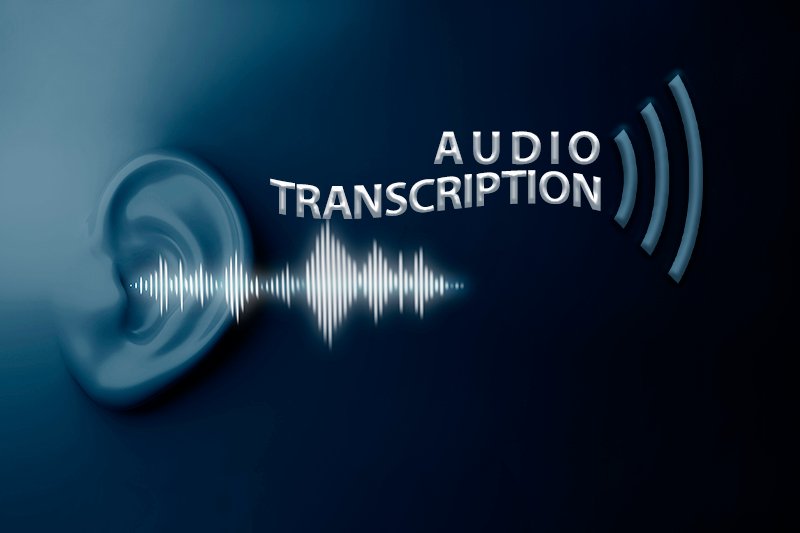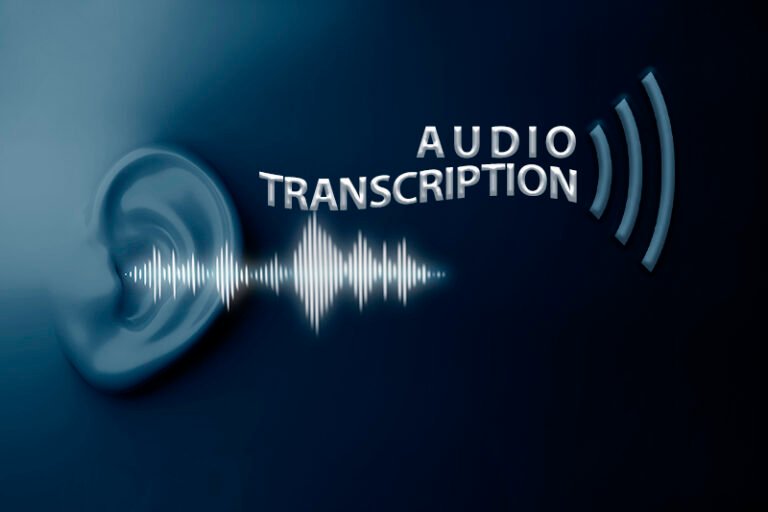Unlocking the Power of Voice: Exploring the Benefits of Intelligent Audio Transcription
In an increasingly digital world, where information flows at an unprecedented pace, the power of voice and speech is undergoing a revolution. The utilization of voice technology has extended far beyond the simple act of talking on the phone or conducting virtual meetings. One of the most transformative applications of this technology is intelligent audio transcription.
The Evolution of Audio Transcription
Audio transcription is not a new concept. For decades, it has been a crucial tool for various industries, such as legal, medical, and journalism. However, traditional transcription methods involved painstakingly listening to audio recordings and manually transcribing them. This process was not only time-consuming but also prone to errors. Intelligent audio transcription, powered by cutting-edge artificial intelligence and machine learning technologies, has changed the game.
Understanding Intelligent Audio Transcription
Intelligent audio transcription is the process of automatically converting spoken language from audio files into written text. This technology uses advanced algorithms to recognize and interpret human speech accurately. The most significant advantage of intelligent transcription is that it significantly reduces the time and effort required to transcribe audio content.
The Benefits of Intelligent Audio Transcription
1. Time Efficiency
Intelligent audio transcription can transcribe hours of audio content in a matter of minutes, a task that would take human transcriptionists significantly longer. This time-saving feature is invaluable in industries where time is of the essence, such as journalism or legal proceedings.
2. Accuracy
Unlike manual transcription, intelligent audio transcription is remarkably accurate. The advanced algorithms used in these systems can differentiate between multiple speakers, handle various accents, and even understand industry-specific jargon, resulting in a more reliable transcription.
3. Cost-Effective
Hiring human transcriptionists can be expensive, especially for businesses that require large volumes of transcription work. Intelligent audio transcription offers a cost-effective solution, saving organizations both time and money.
4. Searchable and Indexable Content
Once audio content is transcribed, the resulting text is easily searchable and indexable. This is particularly beneficial for organizations looking to extract valuable insights or information from their audio records.
5. Accessibility
Intelligent transcription enhances accessibility for individuals with hearing impairments. By converting audio content into text, it ensures that no one is excluded from the information presented.
6. Multilingual Support
Intelligent transcription tools can often support multiple languages, making them invaluable for businesses or individuals working in a global context.
Applications of Intelligent Audio Transcription
The applications of intelligent audio transcription are diverse and continue to grow. Here are some of the most notable ones:
1. Medical Transcription
In the medical field, accurate and timely transcription of patient notes, records, and reports is crucial. Intelligent audio transcription aids healthcare professionals in maintaining comprehensive patient histories and providing quality care.
2. Legal Transcription
Lawyers and legal professionals deal with a considerable amount of recorded audio content. Intelligent transcription makes it easier to search and review legal documents, court proceedings, and client consultations.
3. Content Creation
Content creators, including podcasters and YouTubers, use intelligent audio transcription to convert spoken words into written content. This facilitates content editing, search engine optimization, and the creation of captions or subtitles.
4. Market Research and Data Analysis
Market researchers and data analysts use intelligent transcription to analyze customer feedback, focus group discussions, and interviews. This helps in gaining insights and making informed decisions.
5. Education
Educators use intelligent audio transcription to create transcripts of lectures, making them accessible to students. It also benefits students with different learning styles and abilities.
6. Customer Support and Service
Businesses use audio transcription to analyze customer service calls for quality control and training purposes. This helps in improving customer support and enhancing the overall customer experience.
Challenges and Considerations
While intelligent audio transcription offers numerous benefits, there are some challenges and considerations to keep in mind:
1. Privacy and Security
Sensitive audio content, such as medical records or legal discussions, must be handled with care to ensure data privacy and security.
2. Quality Assurance
Though highly accurate, intelligent transcription systems are not infallible. Proofreading and quality assurance are often necessary to correct errors, especially in specialized fields with unique terminology.
3. Regulatory Compliance
Certain industries, like healthcare and finance, are subject to specific regulations regarding the handling of audio data. Compliance with these regulations is crucial.
4. Ethical Use
The ethical use of intelligent transcription is essential, particularly when dealing with personal or sensitive information. It is vital to obtain consent and follow ethical guidelines when using this technology.
Conclusion
Intelligent audio transcription is a game-changing technology that offers incredible benefits to various industries and individuals. Its ability to save time, improve accuracy, and enhance accessibility has transformed the way we handle audio content. As this technology continues to evolve, we can expect even more innovative applications and improvements in the field of audio transcription. Embracing this technological advancement can streamline processes, reduce costs, and make information more accessible for everyone.















